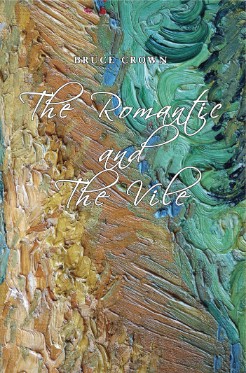YACHTS SWAY ABOVE THE DEEP blue waves of the French Riviera. Its waters are a veiling paradise that enjoy 300 days of sunshine per year; paradise for some, hell for most. It’s the Mediterranean coast- line that extends from the Italian border to the southeast corner of France but it’s really an island. An existential island for journeying souls to unveil and repair themselves until they’re fit to ascend its ledges and reach the apex of Paradise. Its clear turquoise water reflects the jonquil yellow sunlight over 115 kilometres of sandy coastline and beaches. Streets are filled with exotic sports cars and pretty women frolicking from designer boutique to designer spa, thanking Plutus for their lucky fortune and marching straight into the fourth circle of the Inferno.
Quaint little buildings coloured orange and crimson tower over the rocky edges of the meridian. From one door to the next, narrow alleys twist the thoughts of labourers, artists, bartenders, liars, thieves, politicians, and bankers alike.
Neil Meyollner and his wife Nora reside in a unique six-bed- room penthouse at Le 21 Princesse Grace, the most exclusive street in Monaco’s Larvotto district. His wife had lost interest in the blue Versace silk curtains they’d bought the previous season and since they wanted to change the curtains for a third time this year, Neil decided to completely renovate the penthouse for his great love. He had already, for their fourth anniversary, bought the penthouse next door and tore down the separating wall to merge the two and create wardrobes for each of the 5 bedrooms. The previous renovation had left 476 square meters of living space and a 95 square meter terrace.
“I feel cramped Neil,” she’d said to him after returning from a girls’ night out.
He abided to his love of unity then and he abided to his wife now; he would always abide, even if it meant their apartment would end up costing 120,000€ per square meter. Annually the pool, sauna, concierge, and private chauffeurs ran the cost of the place to 65,000€. But again he abided because unity is expensive.
We emerge through a circular unity from our mother’s womb and seasonally precipitate our thoughts until the head of the snake reaches its tail in death. Born unwise and warm until we perish in cold ignorance among others. To reconcile the disunity we feel, we search for equal unity with another. But wisdom is not unity. Every narrative and epic is only a miscellany of letters arranged to form meaning. In ignorance we trade words like old merchants with language as our currency but exchange them with the foreknowledge that they will never mean to the other what they represent for us. If we are lucky we find another with equal ignorance and now we are doubly unwise, misting through our cloudy subconscious in vain hope that we will eventually find wisdom. But wisdom is not unity. We procreate, considering ourselves wise and united. In our “wisdom” we grow old and share our ignorance with our offspring so that we may unite through “wisdom.” But only after we’re dead do we finally understand that wisdom cannot be unity. In illusory unity we reflect on reciprocating the love of ignorance but united neither in wisdom nor in synthesis. Even in the presence of our so-chosen soul mate and the most intimate moments we may share with them we only dent upon the surface of both souls without so much as a thought or touch. Nothing we do is to synthesize wisdom but only to appear wise to ourselves. We are malevolent or benevolent for the same reason: to unite wisdom with power. Since power comes from money, everything we do is to perpetuate our power so that we may legitimately say we are wise, despite the fact that accumulating money does not equate wisdom, and thus we feel as ignorant as ever. Wisdom is the same in all humans in that there cannot be a synthesis of it except in illusion, indolence, and ignorance; but our sense of wisdom is equated to our self-proclaimed vision of power. The more money we have the more authentically we feel our wisdom. Neil was the wisest man in any given room and yet there was scarcely a power he would not relinquish for his wife.
